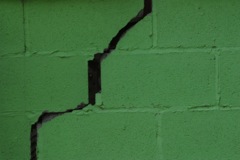Underground storage of CO2 could trigger earthquakes
Some say storing carbon underground as a way to curb greenhouse gas emissions is risky. The container has to last essentially forever, and what if an earthquake rips through the seal? But new research is showing that pumping CO2 underground could itself trigger earthquakes.
Stanford University geophysicist Mark Zoback looked at saline aquifers, one of the main types of geologic formations under assessment for carbon sequestration. He found that adding CO2 gas could increase the geologic pressure underground and set off a quake. Not a big one, mind you. Most likely you’d feel some shaking on the surface at a magnitude three or four. But underground the scenario would be a different story.
“At depth those earthquakes represent slip-on faults and if those earthquakes threaten the integrity of the geologic seal that’s keeping the CO2 in place, then they pose the hazard of inducing long-term leakage of the CO2 out of the repository,” said Zoback. “And of course that’s why it’s being injected in the first place, to keep it out of the atmosphere.”
The Earth’s crust is brittle because of shifting continental plates and just a bit more pressure can set off a quake in otherwise seismically safe areas. Never mind quake-prone California,” he said. “Even quiet places that have been eyeballed for carbon storage like the Midwest still have fault lines.”
To make a dent in global warming using carbon sequestration, about a billion tons of CO2 per year needs to be pumped underground by mid century – equivalent to the volume produced by burning oil and gas. Zoback figures that represents about 3,500 storage sites, or 75 new projects per year by 2050. He’s skeptical that all those sites can be found: “Are we going to invest the huge sums, we’re talking about many tens of billions of dollars only to find that when the earthquakes start occurring we’re going to have to stop the injection and find alternative strategies?”
Zoback presented his findings at the American Geophysical Union’s Fall Meeting in San Francisco.
Alison Hawkes is a freelance journalist in San Francisco and co-founder of Way Out West News.

